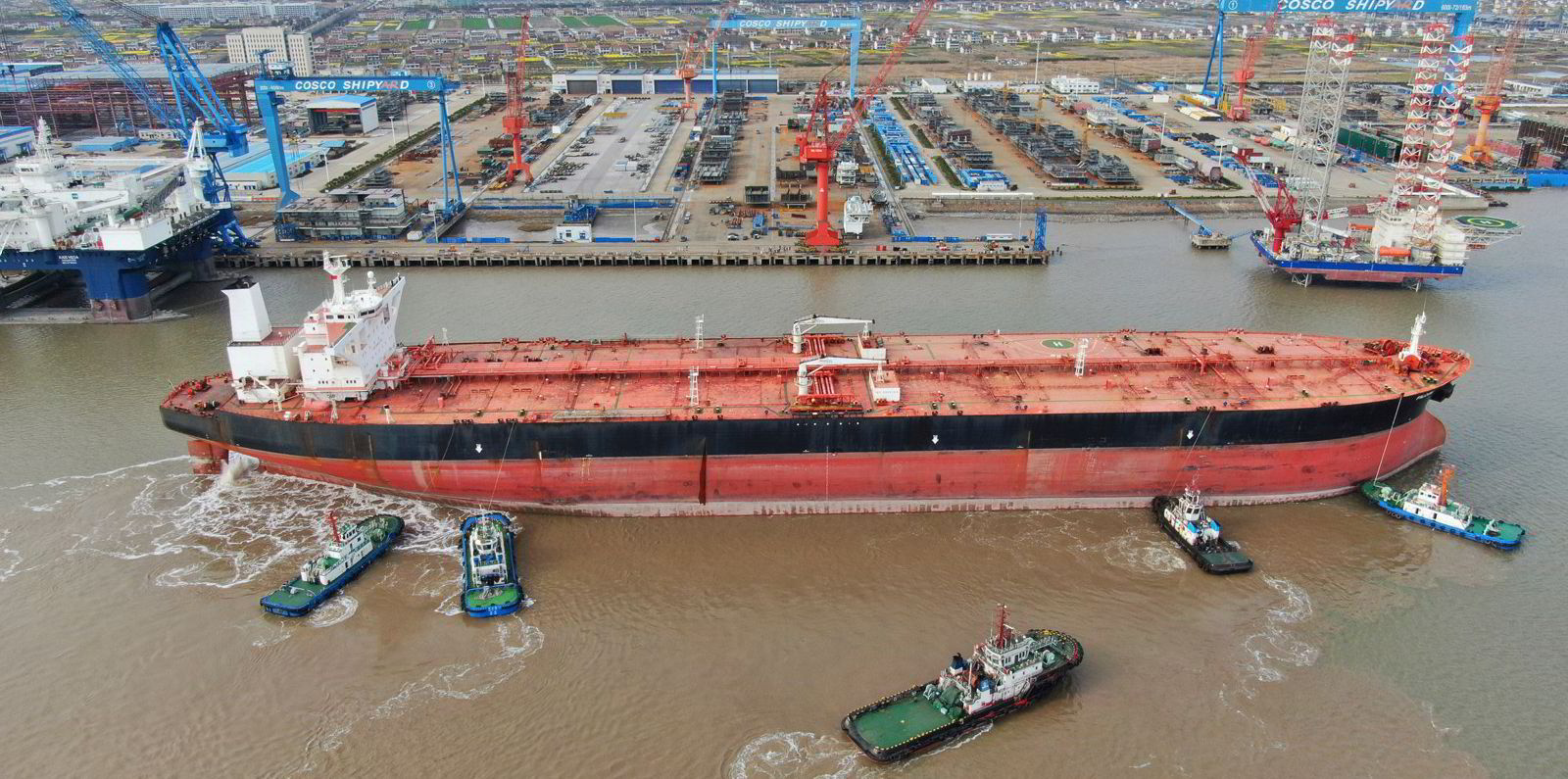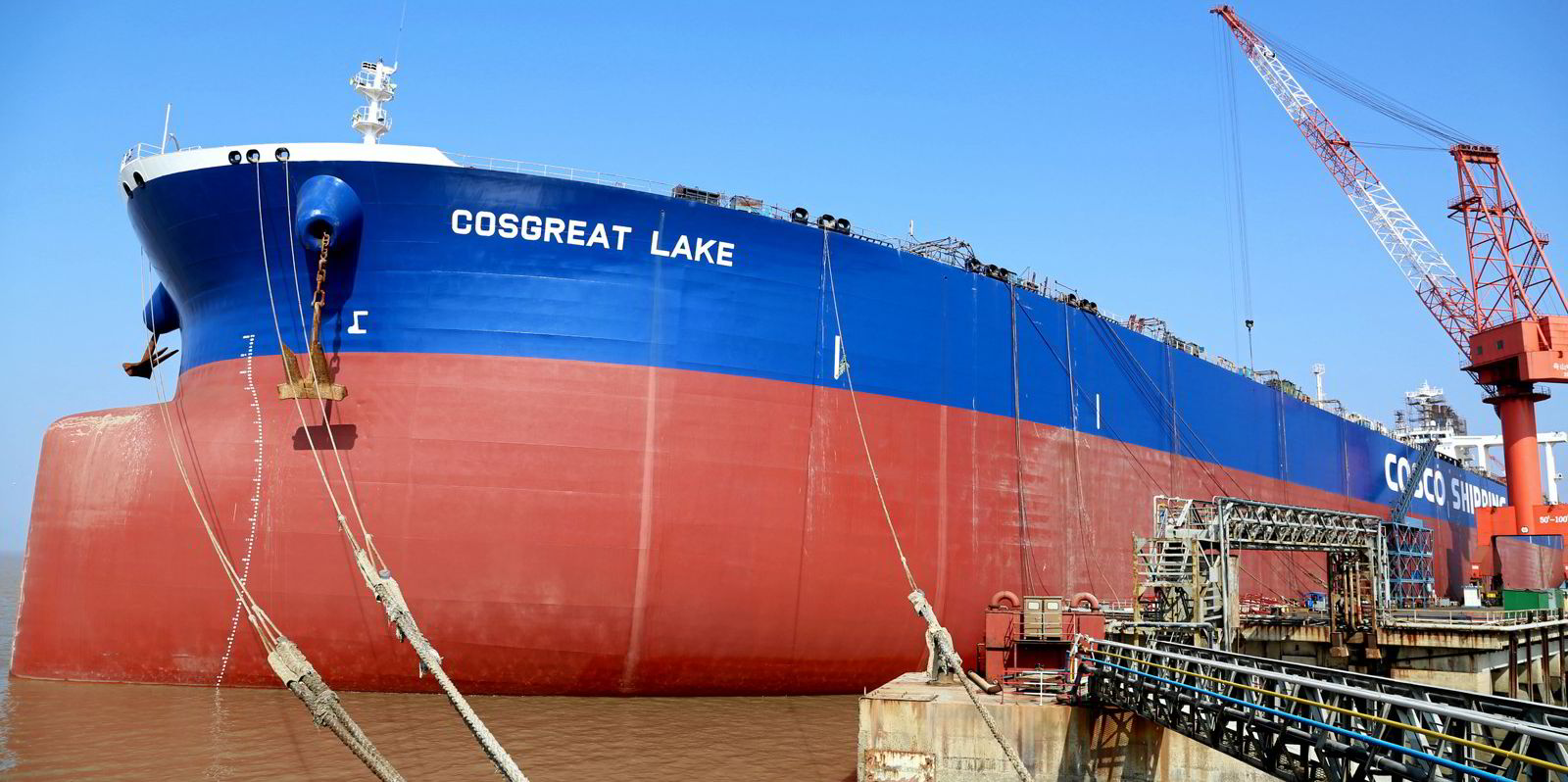Expected gains for VLCCs with the reopening of China may be limited by the continuing impact of Covid-19 and the worsening global outlook, according to shipbroker Braemar.
China ended its pandemic border controls on Sunday, raising hopes for an economic boost for the country, which consumes one-fifth of the world’s oil.
A return to normality is seen by tanker owners as a “wholeheartedly positive development” that would benefit the largest ships on the longest-haul routes, said Braemar.
But it warned that potential gains could be offset by lower demand from elsewhere in the world if a Chinese rebound fuels global inflation and increases interest rates.
It said a rapid rise in coronavirus infections could lead to new lockdowns and production cuts in China, the world’s largest oil importer.
China is key for the VLCC sector, with 85% of its imports using the largest carriers, but the trade has been hit hard by the pandemic.
Chinese oil demand fell last year for the first time in 20 years, said Braemar. The expected rebound in 2023 represents nearly half of global growth in oil demand, the International Energy Agency said.
Uncertainties also remain over the impact of the Russian oil product ban that is scheduled to start next month.
China is due to open two refineries this year and has increased its export quotas for its own oil products.
“Though encouraging, it offers no guarantees that China won’t restrict export quotas again should refining margins leap when Europe bans Russian product imports in February,” Braemar said.
VLCCs have had a difficult start to 2023, with average time charter equivalent rates falling to less than $23,000 per day from highs of more than $75,000 per day in November, according to the Baltic Exchange.





